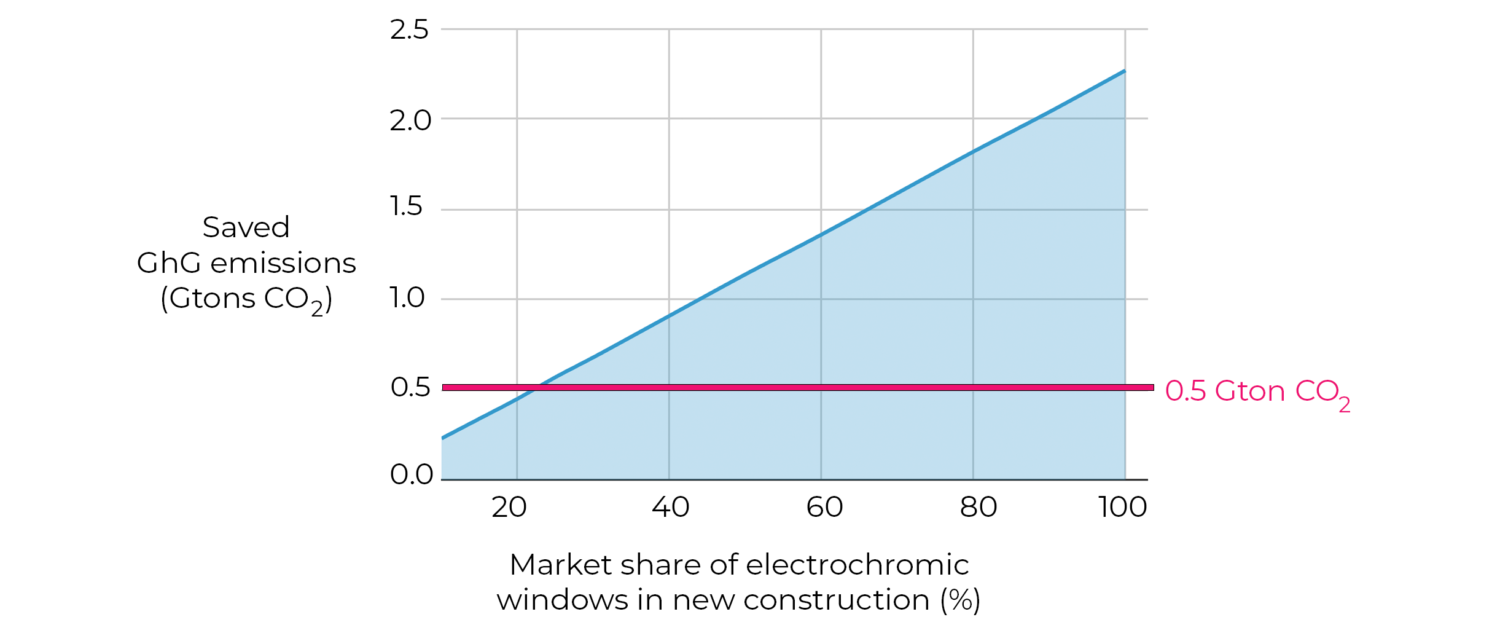Cars, trucks and airplanes are widely regarded as the worst contributors to our climate change crisis for their greenhouse gas (GhG) emissions. But buildings are actually the largest emitters of CO2 — responsible for 40% of the world’s carbon emissions.
The most significant energy draws in buildings are for heating, cooling, and lighting, which generate 10 gigatons of CO2 emissions annually. If we make buildings more eco-friendly, we can stabilize global temperatures. We need to move quickly: The global population is projected to double by the year 2050, and to meet those needs, the pace of construction is not slowing down.
Windows are a major source of building inefficiencies.
Improvements in the efficiency of a window will have a huge impact on CO2 emissions. But the last significant innovation in windows (low-emissivity or low-e windows) was 40 years ago. That’s before the first Apple Macintosh came to market. While computer technology has clearly advanced (we can now operate most of our lives with a smartphone the size of our hand), windows technology innovation has been stuck in the ‘80s.
Enter smart windows or electrochromic windows.
Smart windows significantly increase overall building energy efficiency. Compared to conventional windows with low-emissivity coatings, smart windows can improve building energy efficiency by 20% even in mild climates. In hotter regions, the energy savings can reach 40%.
Smart windows can also reduce peak heating and cooling loads significantly — by 25% or more. This means we can downsize mechanical equipment, saving even more energy and costs. When implemented worldwide, smart windows can make a material impact in reducing energy use and the carbon footprint of buildings.
To put it in perspective, if just 25% of new buildings worldwide adopted the use of electrochromic glass like in Miru smart windows, the carbon savings would exceed half a gigaton annually by 2050.
The graph below projects the carbon savings possible with varying smart window adoption rates in new building construction

It is important that the world recognize how important windows are in reducing global carbon emissions.
Miru windows efficiently control sunlight and solar heat, resulting in reduced energy consumption, lower carbon emissions, and significant cost savings for building owners. By embracing these advanced window technologies, we can make substantial strides toward a more sustainable and energy-efficient built environment.
Miru smart windows offer a game-changing solution for reducing global carbon emissions.
